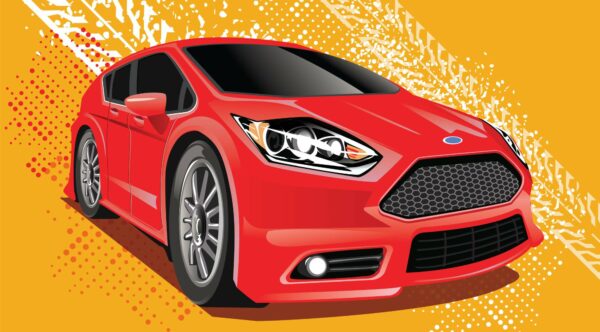While cars are, in general, relatively cheaper than ever in terms of performance and safety, it’s still a thousand or two required to get anything reasonable, and then you have to insure it. As a new driver, your insurance could cost you almost as much as the car, and you’re more than likely going to need a telematics quote to get it at a good price.

Every year in the UK around 2.3-2.6 million new light passenger vehicles (cars) and over 7 million used cars are sold. Nearly 10 million transactions: how do you get in on the action?
First, you need to decide a budget. Something like a ten-year-old Ford Fiesta with 100,000 miles on the clock will cost you £1000-1500. If you’re doing insurance on your own, rather than being added to a parent’s policy, insurance will be anywhere between £700-1200 for third party, fire and theft with a £500 excess for social and commuting use. Then you need to budget for repairs and fuel.
Therefore, starting to save early is the key. Income from a part-time job during school holidays, evenings and weekends should be almost 100% disposable (unless you have mean parents!) Be sure to investigate how you can compound your returns by using bank savings scheme. You could possibly get higher returns investing in something more risky, but you need to be prepared to lose money.
Will your parents lend you money? If so, they might give it to you interest-free, or for a low interest rate that is better than a finance company.
If you’ve managed to save towards the vehicle, but can’t quite make it, you could investigate whether you can get traditional finance. This can be had for anywhere from around 8%. However, avoid taking on too much finance. You must understand the payment terms, how long you’ll be paying it for and how much you will pay in total. The best use of finance is when it allows you to get something perhaps a few months earlier, but you can pay it off within 6 months in full. That way, you don’t end up paying massive amounts of interest, but you do get the benefit of the vehicle earlier than you would have if you had saved the whole amount.
There are also non-conventional sources of funds such as selling unwanted items, or engaging in a side gig that makes you a few extra pounds. There are also plenty of jobs which are good for teenagers to help earn extra cash.
Setting money aside early means you’ll be more prepared for when you want to purchase your first car.
